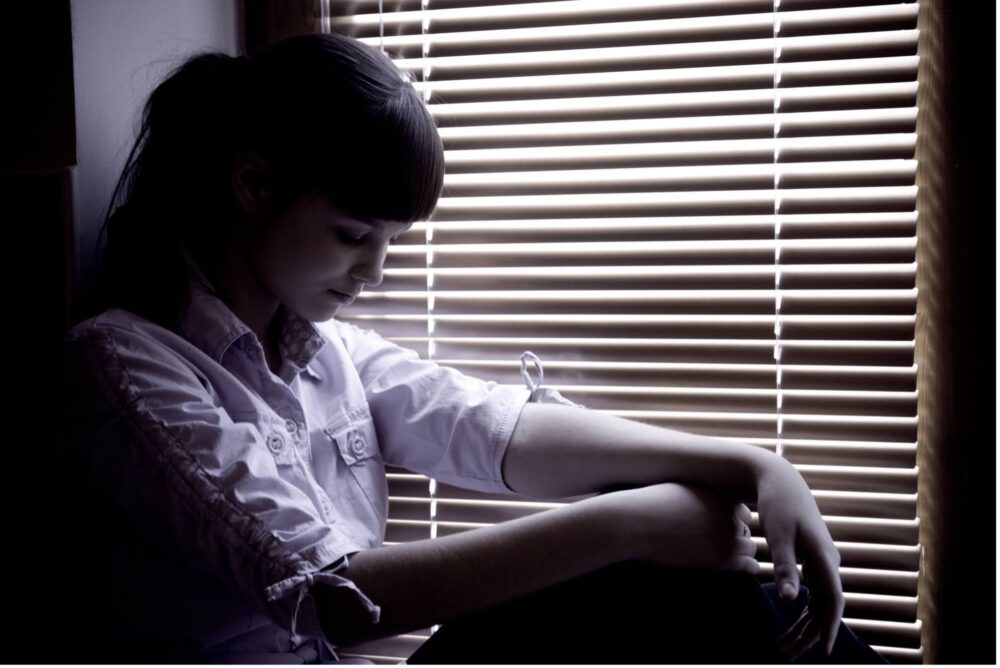PTSD in Adolescents
Can a teen experience post-traumatic stress disorder (PTSD)?
You’ve heard of this mental health issue, but you aren’t sure whether it’s a disorder that only affects adults or one that also impacts children. Take a look at what parents need to know about PTSD, age, diagnosis, and treatment options.

What Is PTSD?
As the name implies, this mental health disorder happens after either witnessing or experiencing a traumatic incident.
The specific trauma isn’t limited to one type of incident or scenario. Some people experience PTSD after fighting in a war, while others may develop this disorder as the result of a serious accident, sexual assault, emotional abuse, physical abuse, bullying, a natural disaster, or any other event that feels traumatic to the person with PTSD symptoms.
PTSD symptoms may not start immediately after the triggering event. Some teens may feel or appear fine for weeks, months, or even years after the traumatic event before experiencing symptoms.
For an overview of related trauma conditions, visit Trauma and Stress-Related Disorders.
Signs of PTSD
What Are the Signs of PTSD?
People with PTSD often have marked personality or activity changes.
A once easy-going teen may suddenly seem sullen, have extreme outbursts, act irritably, or engage in new or self-destructive behaviors. PTSD may also cause a teen to have flashbacks or repeated thoughts of the traumatic event. They may also avoid anything that reminds them of the experience.
Other common PTSD symptoms may include difficulty sleeping, concentration problems, physical pains or aches, loss of interest in normal activities, and heightened emotional reactions.
Difference In Children or Teens
Is PTSD Different In Children or Teens Compared to An Adult?
A child or teenager may show different symptoms of PTSD in comparison to an adult. However, this doesn’t mean your adolescent can’t have some, or many, of the common signs of this disorder.
Younger children may have more difficulty remembering the traumatic events clearly or they may incorporate the incident and their feelings into their play. A teen may show signs or handle PTSD symptoms similarly to how a younger child would. However, a teen may also have PTSD signs or behaviors that look like what you would expect to see in an adult.
Diagnosis
Who Should Diagnose a Teen With PTSD?
Even though parents should know what signs to look for, an untrained adult should never attempt to diagnose a teen with PTSD.
If your child experienced trauma, you think they may have experienced trauma, or they have signs of PTSD, contact a licensed mental health professional. A therapist or counselor can assess your teen’s symptoms, talk to your child about the trauma, and diagnose this disorder using specific mental health criteria.
Treatment
Is There a Treatment for Teen PTSD?
The first step to treatment is a diagnosis.
After your teen receives a professional diagnosis, the counselor or therapist can create a treatment plan. The specifics of this plan vary, depending on your teen’s age, the traumatic event, and the symptoms your child experiences.
Common treatment options for PTSD in children and teens include cognitive behavioral therapy (CBT), psychotherapy, trauma therapy, and medications. Some teens may need a combination of talk therapy and medications (such as prescription anti-anxiety or anti-depression medications) to alleviate or eliminate challenging symptoms.
To understand how exposure-based techniques work in trauma recovery, see Treating Anxiety Disorders With Exposure Therapy: Questions & Answers.
How Long Does Treatment Take for Teens?
There’s no universal answer to this question.
The length of treatment times depends on a few factors, such as the severity of the trauma and symptoms, types of treatment options available, and your teen’s response to the therapy or medication. After your teen’s diagnosis, talk to their therapist about what to expect from treatment and the timeline they feel is appropriate.
Do you think your teen may have PTSD?
Do you think your teen may have PTSD?
Contact the Anxiety Institute for more information on diagnosis and treatment options.

